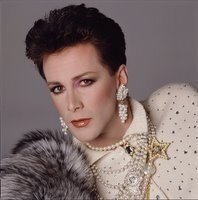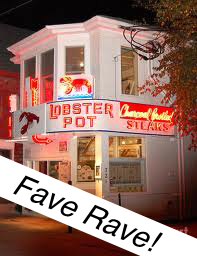A New Sybil's "WHO'Z DAT?"... ALLEN JENKINS (April 9, 1900 - July 24, 1974)
/Darlings! Mummy has made a decision! After reading dozens of posts and having hundreds of conversations with well-meaning folks who just don't know about the great CHARACTER actors who gave films the depth and genius that surrounded and supported the so-called "stars", I am going to post a regular, special entry called SYBIL'S "WHO'Z DAT??"....there'll be photos and a mini-bio, and the next time you see one of those familiar, fabulous faces that you just "can't quite place".......well, maybe these posts will help. Some of these actors worked more, had longer and broader careers, and ended up happier, more loved, and even wealthier than the "stars" that the public "worships"......I think there may be a metaphor in that! What do you think??? ….well, here’s one of those faces that you can’t miss or forget!...as a matter of fact, just to see his face automatically triggers the sound of his voice in many film fans! He’s Allen Jenkins (April 9, 1900 – July 20, 1974).
Born David Allen Curtis Jenkins in Staten Island, New York on April 9, 1900. Both of Allen Jenkins' parents were musical comedy performers, and he entered the theater as a stage mechanic after World War I, after having spent time working in the Brooklyn Navy Yard. He studied at the American Academy of Dramatic Arts. In his first stage appearance, he danced next to James Cagney in a chorus line for an off-Broadway musical called PITTER-PATTER (1920), earning five dollars a week. He also appeared in Broadway plays between 1923 and 1962, including THE FRONT PAGE (1928). His big break came when he replaced Spencer Tracy for three weeks in the Broadway play THE LAST MILE (1930).
Jenkins was called to Hollywood by Darryl F. Zanuck and signed first to Paramount Pictures and shortly afterward to Warner Bros. His first role in films came in 1931, when he appeared as an ex-convict in the short STRAIGHT AND NARROW. He had originated the character of Frankie Wells in the Broadway production of BLESSED EVENT and reprised the role in its film adaptation, both in 1932. With the advent of talking pictures, he made a career out of playing comic henchmen, stooges, policemen, taxi drivers, and other 'tough guys' in numerous films of the 1930s and 1940s, especially for Warner Bros. where the actor made so many pictures that he was sometimes referred to as "the fifth Warner Brother." As outspoken and pugnacious off screen as on, Jenkins was a member in good standing of Hollywood's so-called "Irish Mafia," a rotating band of Hibernian actors (including James Cagney, Pat O'Brien, Frank McHugh and James Gleason) who palled around incessantly. Vivid in even the smallest walk-ons roles, Jenkins was labeled the "greatest scene-stealer of the 1930s" by The New York Times. Some of his most iconic films include heavy “message dramas” like I AM A FUGITIVE FROM A CHAIN GANG (1932) with Paul Muni and classic Art Deco Busby Berkeley musicals like 42ND STREET (1933).
Popular but undisciplined and profligate with his money, Jenkins was reduced to "B" films by the 1940s and 1950s, including occasional appearances in RKO's Falcon films and the Bowery Boys epics at Monogram; still, he was as game as ever, and capable of taking any sort of physical punishment meted out to his characters. TV offered several opportunities for Jenkins in the 1950s and 1960s, notably his supporting role on 1956's HEY JEANNIE, a sitcom starring Scottish songstress Jeannie Carson, and 30 weeks' worth of voice-over work as Officer Dibble on the 1961 animated series Top Cat. Going the dinner theater and summer stock route in the 1960s, Jenkins was as wiry as ever onstage, but his eyesight had deteriorated to the point that he had to memorize where the furniture was set. Making ends meet between acting jobs, Jenkins took on work as varied as tool-and-die making for Douglas Aircraft and selling cars for a Santa Monica dealer. Asked in 1965 how he felt about "moonlighting", Jenkins (who in his heyday had commanded $4000 per week) growled, "I go where the work is and do what the work is! Moonlighting's a fact. The rest is for the birds." Towards the end of his life, Jenkins was hired for cameo roles by directors who fondly remembered the frail but still feisty actor from his glory days; one of Jenkins' last appearances was as a telegrapher in the final scene of Billy Wilder's THE FRONT PAGE (1974). Being a great character actor, he aged gracefully as his roles did moving smoothly through the years while the films and their subjects evolved. In 1959 Jenkins played the role of elevator operator Harry in the comedy PILLOW TALK with Doris Day and Rock Hudson.
Jenkins even voiced the character of Officer Charlie Dibble on the Hanna-Barbera TV cartoon, TOP CAT (1961–62). He was a regular on the television sitcom HEY, JEANNIE! (1956–57), starring Jeannie Carson and he often portrayed Muggsy on the 1950s-1970s CBS series THE RED SKELTON SHOW. He was also a guest star on many other television programs, such as THE MAN FROM U.N.C.L.E., MR. & MRS. NORTH, I LOVE LUCY, PLAYHOUSE 90, THE ERNIE KOVACS SHOW, ZANE GREY THEATER, and YOUR SHOW OF SHOWS. He had a cameo appearance in IT'S A MAD, MAD, MAD, MAD WORLD (1963). Eleven days before his death, he made his final appearance, at the end of Billy Wilder's remake of THE FRONT PAGE (1974); it was released posthumously.
Jenkins was married to Mary Landee from 1931 to 1962 when they divorced. They had three children. He went public with his alcoholism and was the first actor to speak in the U.S. House of Representatives and the Senate about it. He helped start the first Alcoholics Anonymous programs in California prisons for women. He was the seventh member of the Screen Actors Guild. Jenkins died of lung cancer early on July 20, 1974. He was 74 years old.
[Want to read other fun and funny stories here on SybilSez.com? Just enter any topic that pops into your head in the "search" window on the upper right! Who knows what might come up?...and feel free to share them with your friends!]









